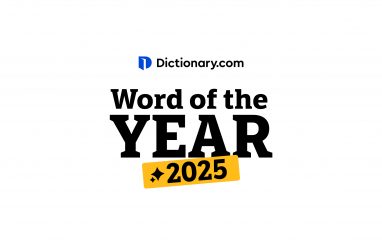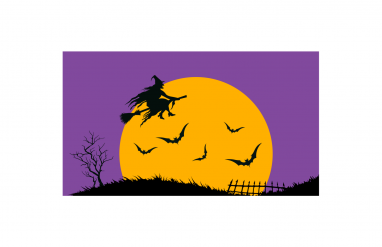Each week, we scan the latest headlines to spot words in action. From major news stories to pop culture buzz, this feature highlights language as it’s unfolding. Stories about global tensions, disease control, and a suddenly infamous mouse all contributed to the vocabulary from this week’s news.
adverse
adjective: unfavorable or antagonistic in purpose or effect
From the headlines: A new law in Minnesota will mandate that social media platforms display warnings about potential adverse effects on mental health. Similar to labels on tobacco and alcohol products, the pop-up notices will alert users that extended social media use may be linked to anxiety, depression, and other harmful mental health outcomes. Users will have to confirm they’ve read the warnings before accessing the platforms.
capitulate
verb: to surrender unconditionally or on stipulated terms
From the headlines: Cambodia and Thailand capitulated to political pressure from China and the US and agreed to a ceasefire. Cambodia and Thailand have long disputed ownership of an ancient Hindu temple near their shared border. China, as the largest trading partner for both nations, leveraged its economic influence to push for peace, while President Donald Trump threatened additional tariffs. Facing this economic pressure, both countries reluctantly accepted the ceasefire.
dengue
noun: Pathology. an infectious, eruptive fever characterized by severe pain in the joints and muscles
From the headlines: Scientists in Brazil are breeding mosquitoes specially engineered to shut down the transmission of dengue. Supervised by the nonprofit World Mosquito Program and funded by the Brazilian government, lab workers breed millions of mosquitos containing the bacteria Wolbachia. Dengue is unable to coexist with this bacteria, so these insects are physically unable to spread the devastating, painful disease.
embassy
noun: the official headquarters of an ambassador
From the headlines: Indian police arrested a man accused of running a bogus embassy and claiming to be the ambassador to various nonexistent countries. Harshvardhan Jain is accused of running the fake office from a residential building near Delhi, where he said he was a diplomat representing nations including “Seborga” and “Westarctica.” Jain allegedly took money from people after promising them overseas jobs.
maggot
noun: a soft-bodied, legless larva of certain flies
From the headlines: Recent research has led to a hypothesis that maggots were a large part of the diet eaten by Neanderthals. Scientists previously thought that humans’ closest relatives ate enormous quantities of meat, but analysis of chemical signatures in Neanderthal bones shows that they also feasted on the pale worm-like larvae that form on rotting carcasses. This new theory suggests that Neanderthals stored meat, which attracted maggots — and that eventually, they ate those too.
mascot
noun: an animal, person, or thing adopted by a group or organization as its representative symbol
From the headlines: A Chuck E. Cheese mascot in Tallahassee, Florida, was arrested for credit card fraud. Jermell Jones, who performed at the restaurant and entertainment center in a large mouse costume, now faces three felony charges. Police found a customer’s credit card on him during a search, and he was taken into custody while still dressed as the mascot.
primate
noun: Zoology. an animal belonging to an order of various worldwide omnivorous mammals distinguished by the use of hands, varied locomotion, and complex behavior
From the headlines: A new bill in Congress aims to ban the private ownership of captive primates nationwide. Experts say that keeping chimpanzees, spider monkeys, and other primates as pets often causes them illness, stress, and malnutrition. These emotionally complex animals thrive best in social groups with their own kind, experts add. While some states already prohibit primate ownership, it remains legal in many parts of the country to keep and breed them.
rickshaw
noun: a small cartlike passenger vehicle
From the headlines: The all-women Pink City Rickshaw Company in Jaipur, India, provides a rare experience for women in the country. The small electric autos, which are hired like taxis in India’s busy cities, are traditionally driven by men. With the help of a nonprofit business incubator, 200 women were trained to drive the vehicles, gaining independence and an income in the process.
sequoia
noun: an endangered coniferous tree characterized by its massive girth and tremendous height
From the headlines: A Michigan tree grower is trying to save old-growth forests from extinction using sequoia DNA. David Milarch selects ancient, giant trees that have grown to be especially large and resilient and clones them to produce genetically hardy saplings. Milarch has sent these young sequoias all over the world, but he’s especially dedicated to planting them in Detroit. The city now has 225 of the towering redwoods, which help reduce temperatures and improve air quality in urban areas.
sinuous
adjective: characterized by a series of graceful curving motions
From the headlines: Scientists have rediscovered the world’s smallest snake, once believed to be extinct. The Barbados threadsnake, which measures under four inches and is as thin as spaghetti, hadn’t been seen in two decades. Conservationists remain concerned about the future of this tiny, sinuous reptile, as its natural habitat has been severely damaged by deforestation and urban growth.









